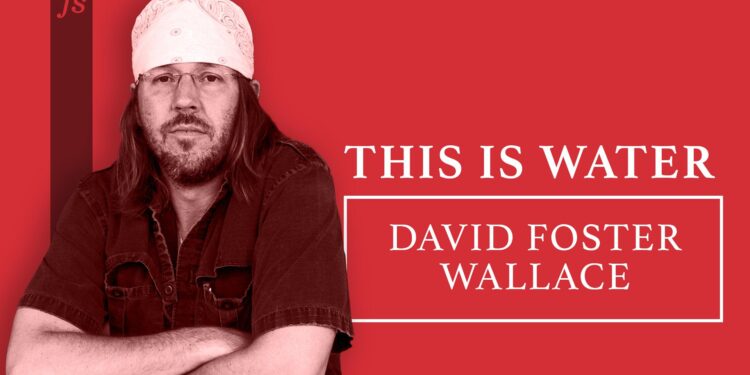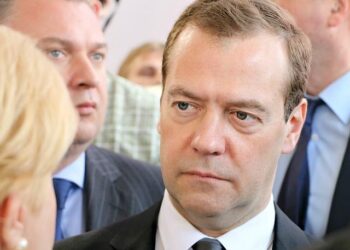Denmark officially assumed the rotating presidency of the European Union this week amid escalating challenges on the continent and beyond. As tensions continue to mount in Ukraine following Russia’s invasion, Copenhagen faces the urgent task of navigating complex security concerns within the EU. At the same time, fallout from ongoing tariff disputes linked to former U.S. President Donald Trump’s trade policies adds another layer of economic uncertainty. Denmark’s leadership comes at a critical juncture as member states seek to strengthen unity and coordinate responses to geopolitical instability and global market disruptions.
Denmark Assumes EU Presidency Amid Escalating Conflict in Ukraine
As Denmark steps into its six-month tenure at the helm of the European Union, the country faces a complex geopolitical landscape dominated by the ongoing conflict in Ukraine. With the war escalating and tensions rising across the continent, Copenhagen is tasked with steering the EU’s diplomatic and humanitarian efforts. Denmark has pledged to prioritize the protection of EU unity, strengthen sanctions against aggressors, and accelerate financial aid to Ukrainian civilians and refugees. Experts emphasize that Denmark’s presidency will be critical in maintaining cohesion among member states during these fraught times.
Aside from the conflict in Eastern Europe, Denmark’s EU agenda also confronts significant economic hurdles sparked by recent international trade disputes. Notably, the fallout from U.S. tariff policies announced under the Trump administration continues to unsettle EU markets, threatening growth and complicating supply chains. The Danish government has expressed commitment to navigating these economic challenges by facilitating dialogue within the EU bloc and advocating for fair trade practices. Below is an overview of Denmark’s prioritized challenges during its EU presidency:
- Security & Defense: Enhancing EU’s response to ongoing conflicts.
- Economic Stability: Addressing trade disruptions and tariff implications.
- Humanitarian Aid: Supporting displaced populations in Ukraine.
- Energy Security: Diversifying sources to reduce dependency.
| Focus Area | Key Initiative | Expected Outcome |
|---|---|---|
| Security | Increased EU sanctions | Reduced aggression |
| Trade | Negotiation of tariff relief | Improved market stability |
| Humanitarian | Emergency aid packages | Support for refugees |
Navigating Transatlantic Trade Tensions and the Impact of Trump Tariffs
As Denmark steps into its EU presidency amidst heightened geopolitical strains, the shadow of U.S. tariffs imposed under the Trump administration looms large over transatlantic trade relations. These tariffs, initially introduced as part of a broader protectionist agenda, have triggered a cascade of challenges for European exporters, complicating negotiations with the United States and testing the resilience of trade alliances. Denmark, advocating for a unified European stance, is focused on mitigating the economic fallout by promoting dialogue aimed at de-escalation and recalibration of tariff policies.
- Trade Disruptions: Increased costs for European industries relying on steel and aluminum imports.
- Diplomatic Strain: Heightened tensions between the EU and the U.S. over trade fairness and market access.
- EU Strategic Response: Push for WTO engagement and development of new trade defense instruments.
| Sector | Impact | EU Response |
|---|---|---|
| Automotive | Supply chain delays, cost hikes | Seeking tariff exemptions |
| Agriculture | Export restrictions, price volatility | Support for affected farmers |
| Metals | Import tariffs, reduced competitiveness | Counter-tariff measures |
Within this complex environment, Denmark’s leadership underscores the importance of fostering collaboration not only among member states but also with key allies to ensure that trade tensions do not exacerbate broader geopolitical instability. The presidency aims to balance assertiveness with diplomacy, seeking constructive engagement to protect European economic interests while contributing to the restoration of a predictable and rules-based international trade order.
Strategic Priorities for Denmark to Strengthen EU Unity and Economic Resilience
Amid escalating geopolitical tensions and unpredictable global trade dynamics, Denmark aims to reinforce the European Union’s cohesion by prioritizing a unified response mechanism that balances diplomatic resolve with economic pragmatism. Central to this effort is enhancing collaborative defense initiatives and strengthening support for Ukraine, positioning Denmark as a key mediator advocating for solidarity among member states. Equally critical is the focus on mitigating the disruptive impact of external trade pressures, including tariff upheavals, by pushing forward common EU strategies to safeguard key industries and supply chains.
Denmark’s approach foregrounds a multi-faceted economic strategy emphasizing resilience through innovation and sustainability. This includes bolstering investment in green technologies, digital transformation, and infrastructure modernization to future-proof the Union’s economy. To outline these priorities clearly, the Danish presidency has proposed the following focal points:
- Enhanced defense cooperation to secure the EU’s external borders and support regional stability.
- Strategic trade policy aiming at countering unfair tariffs and fostering diversified supply chains.
- Green transition investments as a cornerstone for long-term economic resilience and sustainability.
- Digital economy innovation to boost competitiveness and create new market opportunities.
| Priority Area | Key Initiatives | Expected Outcomes |
|---|---|---|
| Defense & Security | Joint military exercises, intelligence sharing | Stronger EU deterrence and rapid crisis response |
| Trade & Tariffs | Unified tariff policies, trade diversification | Reduced market disruptions, increased resilience |
| Green Growth | Funding renewable projects, carbon neutrality goals | Lower emissions, new green jobs |
| Digitalization | Support for AI, 5G expansion | Enhanced productivity, global tech leadership |
Concluding Remarks
As Denmark assumes the rotating EU presidency amid the dual challenges of the ongoing war in Ukraine and escalating trade tensions sparked by former U.S. tariffs, its leadership will be closely watched across the continent. Balancing the urgent need for unified support for Ukraine with the imperative to stabilize trade relations represents a formidable test for Copenhagen. The coming months will reveal whether Denmark can steer the European Union through these geopolitical and economic storms, setting the tone for the bloc’s priorities in a turbulent and uncertain global landscape.
















